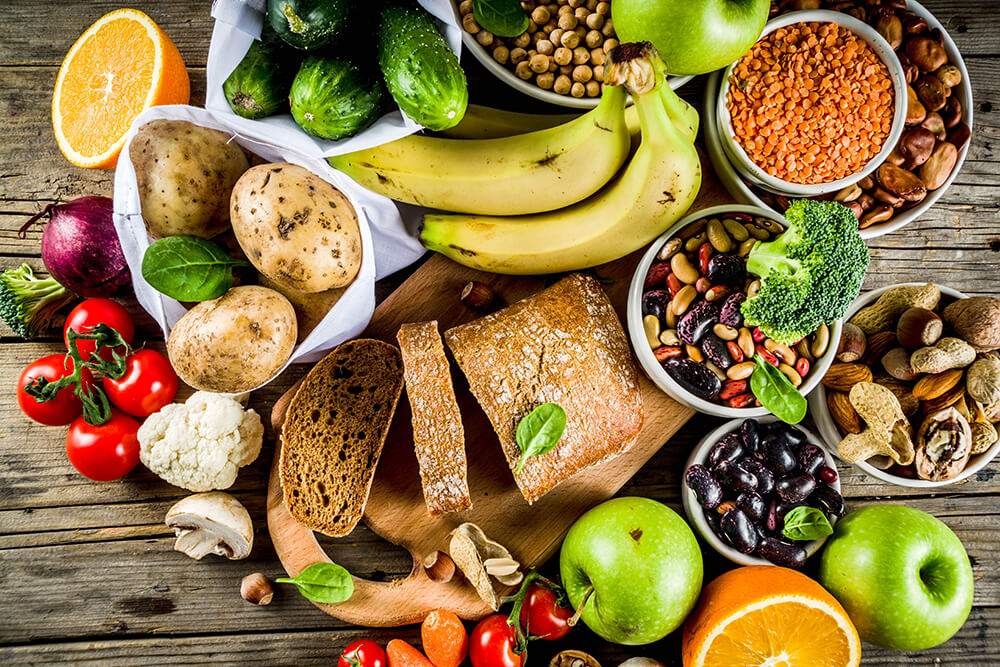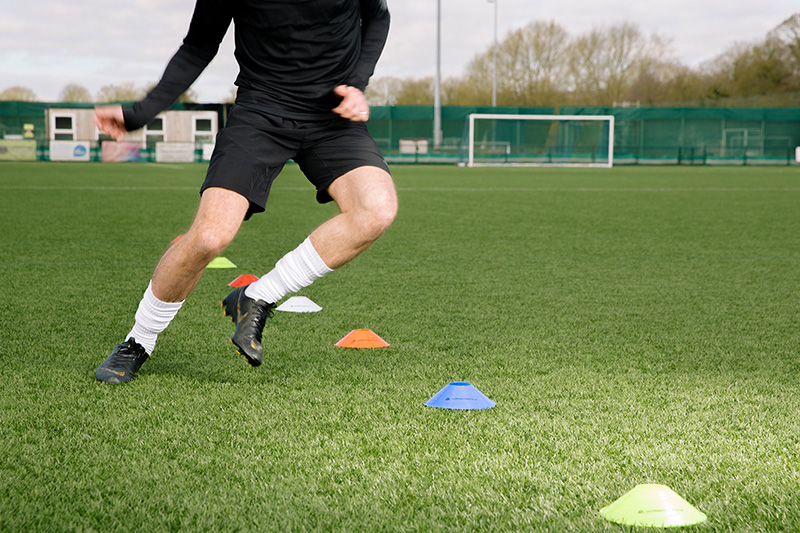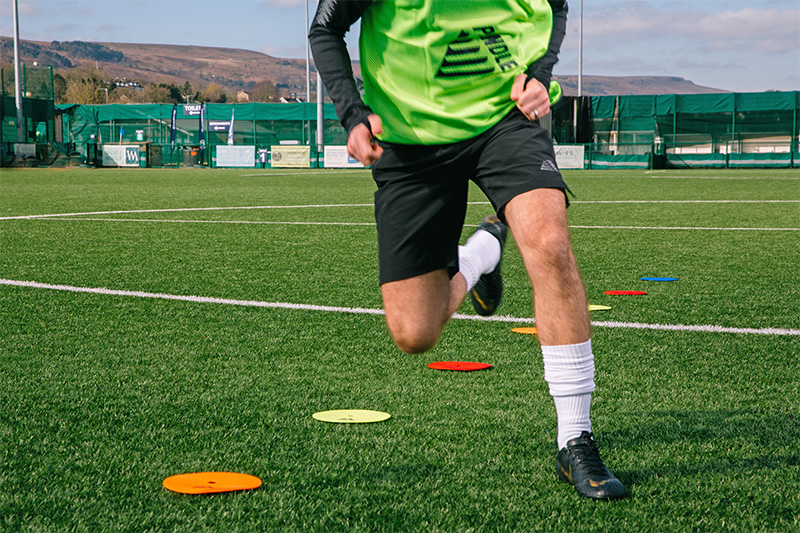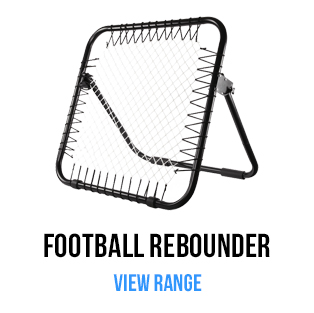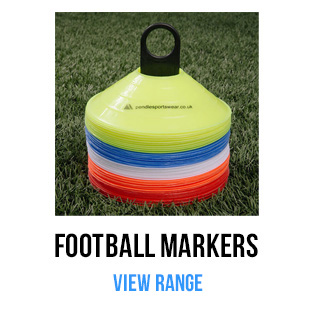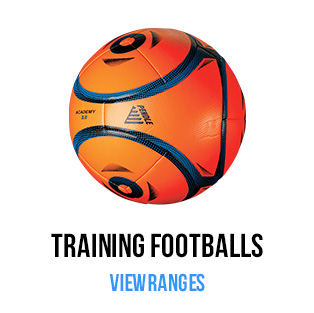Last Updated on: 11th October 2024, 11:44 am
Footballer’s Pre-Season Diet Plan
What diet is best for football players?
A footballer’s diet is an important aspect of their performance and fitness. Pre-season is all about getting fitter and getting back to peak performance. So you’ll need to think about your lifestyle. Maintaining a strict diet during a break can be difficult but good nutrition will help you get back to your best. This post will go over some helpful tips for maintaining the best footballer’s diet. Combine with good hydration and you’ll be able to make the most out of pre-season training.
Focus on Balanced Macronutrients
Your body will go through a lot during training. After a few weeks off, it’ll be under additional stress due to increased activity. So you need a diet that provides all of the necessary nutrients. Aim for a balanced ratio of complex carbohydrates, lean proteins, and healthy fats in each meal. This will ensure sustained energy, muscle repair, and overall nutritional adequacy.
Carbohydrates
One of your key objectives for pre-season is building stamina, so training might go on longer. To last the whole session, you’ll need more fuel and that means carbohydrates. Adding complex carbohydrates to your diet helps sustain your energy levels throughout the day. Include a variety of carbohydrate sources in your meals including:
- Brown rice
- Quinoa
- Sweet potatoes
- Wholewheat bread
- Fruits
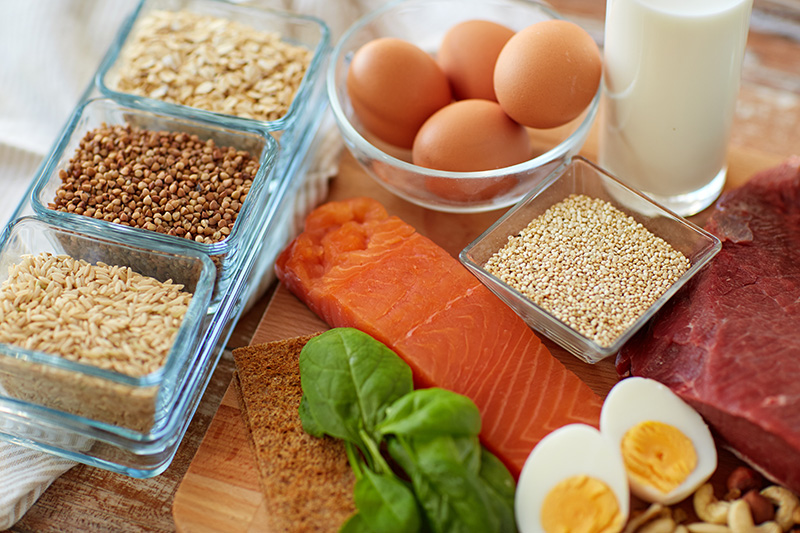 Protein
Protein
Protein is essential for muscle repair and growth. Over the break, your muscles might have lost some strength and you’ll want to get it back. You might need a larger protein intake than you’re used to. Distribute your protein intake evenly throughout the day to support muscle recovery and growth. Sources of lean protein include:
- Chicken or turkey
- Fish
- Lean beef
- Eggs
- Dairy products
- Plant-based proteins (beans and lentils)
Fats
Healthy fats provide essential nutrients and aid your overall health. Make sure to include them in moderation for a balanced diet because they contribute to optimal brain function and help reduce inflammation. Foods with healthy fats include:
- Olives
- Avocado
- Nuts (walnuts, almonds, cashews)
- Seeds (sunflower, flax, chia)
- Fatty/Oily fish (salmon, tuna, trout)
You can easily include these in your diet by adding an avocado to a smoothie or sprinkling nuts and seeds over a salad. Oily fish is also a good source of protein so you should aim to add this to your diet once a week.
Micronutrients
Make sure that you’re also getting plenty of vitamins, minerals and antioxidants. A footballer’s diet should include a variety of fruits and vegetables. Opt for nutrient-dense choices like leafy greens, berries, citrus fruits, bell peppers and broccoli.
Snacking
There’s no reason why a footballer can’t add healthy snacks to their diet. They help maintain energy levels and might prevent you from overeating at mealtimes. However, you’ll want to choose nutrient-dense options like Greek yoghurt with granola, protein bars, hummus with wholegrain crackers or fruit with nut butter.
Pre-Training Nutrition
Pre-season is all about building your endurance so you’ll probably be going on medium to long runs as well as short sprints. That type of activity needs adequate fuel, which means carbs. About 2-3 hours before training, consume a balanced meal that contains carbs for energy and protein for muscle support.
Pick options like porridge with berries, a turkey and vegetable wrap, a chicken stir-fry with brown rice or a vegetable omelette with wholegrain toast.
Post-Training Recover
After intense training, prioritise recovery to optimise muscle repair. Consume a post-workout snack or a meal within 30-60 minutes, consisting of carbohydrates and proteins. Good options include a grilled chicken or salmon salad with quinoa, a protein shake with fruits or Greek yoghurt with berries and granola. Although. if you want an easy option, drink a 500ml glass of low-fat milk. This has a great ratio of carbs to protein and will help you hydrate.
Best Foods For Every Footballer’s Diet
- Spinach – Spinach has high levels of iron plus vitamins A and K. They help reduce inflammation, support bone health and reduce fatigue. You can easily add it to a smoothie or salad.
- Eggs – Eggs are a great source of protein and essential amino acids. They’re particularly rich in leucine which is important for muscle repair.
- Oily fish – Oily fish are full of protein and high in omega-3. This makes them ideal for recovery and fighting inflammation. It’s also good for the immune system and your bones and joints.
- Cruciferous vegetables – These are low-fat, low carb and high-fibre vegetables. We’re talking things like broccoli, kale, cauliflower, brussel sprouts and cabbage. They’re full of great stuff like folate, vitamins A & C and antioxidants. They can help reduce inflammation and support recovery.
- Avocado – Avocados are full of healthy fats, vitamins and minerals. You can smash them on wholewheat toast or add them to a smoothie.
- Beetroot – Beetroots are full of nitrates which can increase stamina, improve blood flow and help lower blood pressure. As they’re more highly concentrated, beetroot juice shots are a great choice.
Listen to your body
Everyone is different, so there are no real rules about how much to eat and when. Pay attention to how your body responds to different foods and adjust your nutrition plan if necessary. Keep track of your performance, energy levels and recovery to ensure you’re using the right approach for you.
Make the Most of Pre-Season Training
Proper nutrition is a fundamental component of successful pre-season training If you understand your energy needs, prioritise macronutrients and stay hydrated, you can optimise your performance and endurance.
To make this easier, you’ll want a training kit that performs as well as you do. Make use of our compression training wear like the Braga training top and matching training bottoms. Or grab one of our football t-shirts and a pair of football shorts if you prefer something a bit looser.
You’ll also want to make sure you have plenty of football training equipment so you can set up drills. Grab some football cones, training markers and training footballs. If you’re running a session, you’ll want to few football bibs and maybe some agility ladders. If you’re practicing skills in your garden, a football rebounder is a great option.
Pre-Season Essentials
Tags: diet guide, football diet, football diet plan, football meal plan, football nutrition, meal plan, nutrition, nutrition guide

